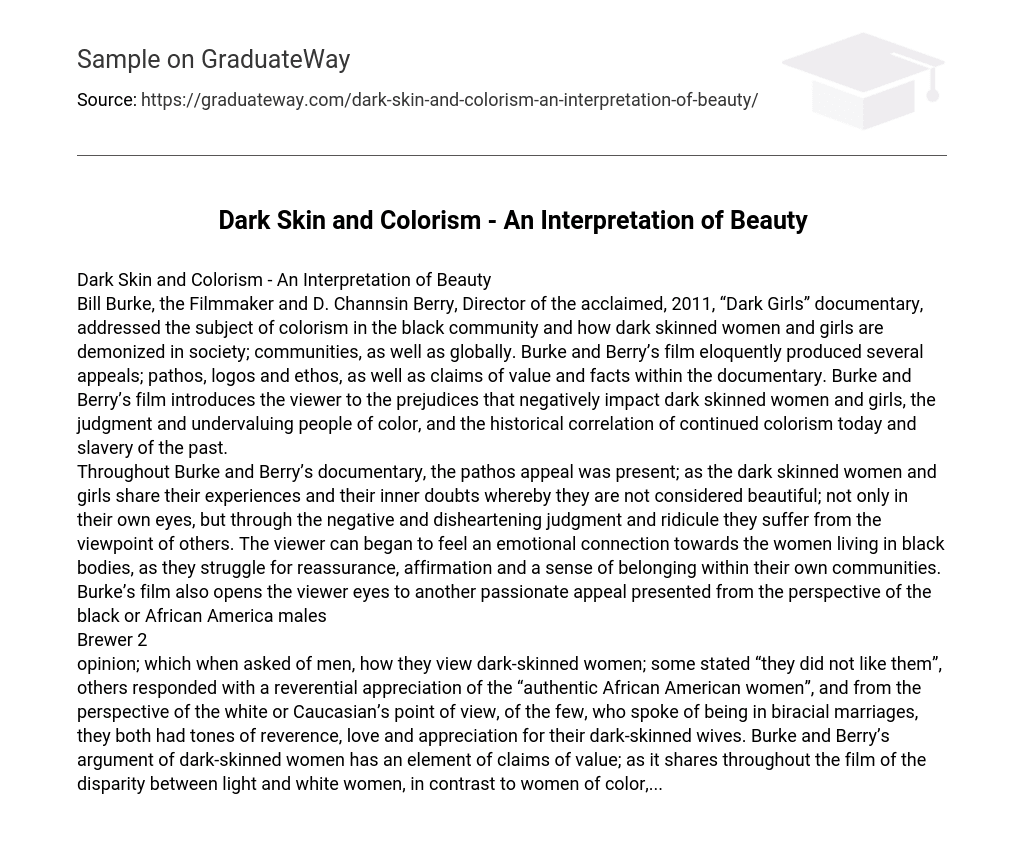Bill Burke, the Filmmaker and D. Channsin Berry, Director of the acclaimed, 2011, “Dark Girls” documentary, addressed the subject of colorism in the black community and how dark skinned women and girls are demonized in society; communities, as well as globally.
Burke and Berry’s film eloquently produced several appeals; pathos, logos and ethos, as well as claims of value and facts within the documentary. Burke and Berry’s film introduces the viewer to the prejudices that negatively impact dark skinned women and girls, the judgment and undervaluing people of color, and the historical correlation of continued colorism today and slavery of the past.
Throughout Burke and Berry’s documentary, the pathos appeal was present; as the dark skinned women and girls share their experiences and their inner doubts whereby they are not considered beautiful; not only in their own eyes, but through the negative and disheartening judgment and ridicule they suffer from the viewpoint of others.
The viewer can began to feel an emotional connection towards the women living in black bodies, as they struggle for reassurance, affirmation and a sense of belonging within their own communities. Burke’s film also opens the viewer eyes to another passionate appeal presented from the perspective of the black or African America males Brewer 2 opinion; which when asked of men, how they view dark-skinned women; some stated “they did not like them”, others responded with a reverential appreciation of the “authentic African American women”, and from the perspective of the white or Caucasian’s point of view, of the few, who spoke of being in biracial marriages, they both had tones of reverence, love and appreciation for their dark-skinned wives.
Burke and Berry’s argument of dark-skinned women has an element of claims of value; as it shares throughout the film of the disparity between light and white women.





